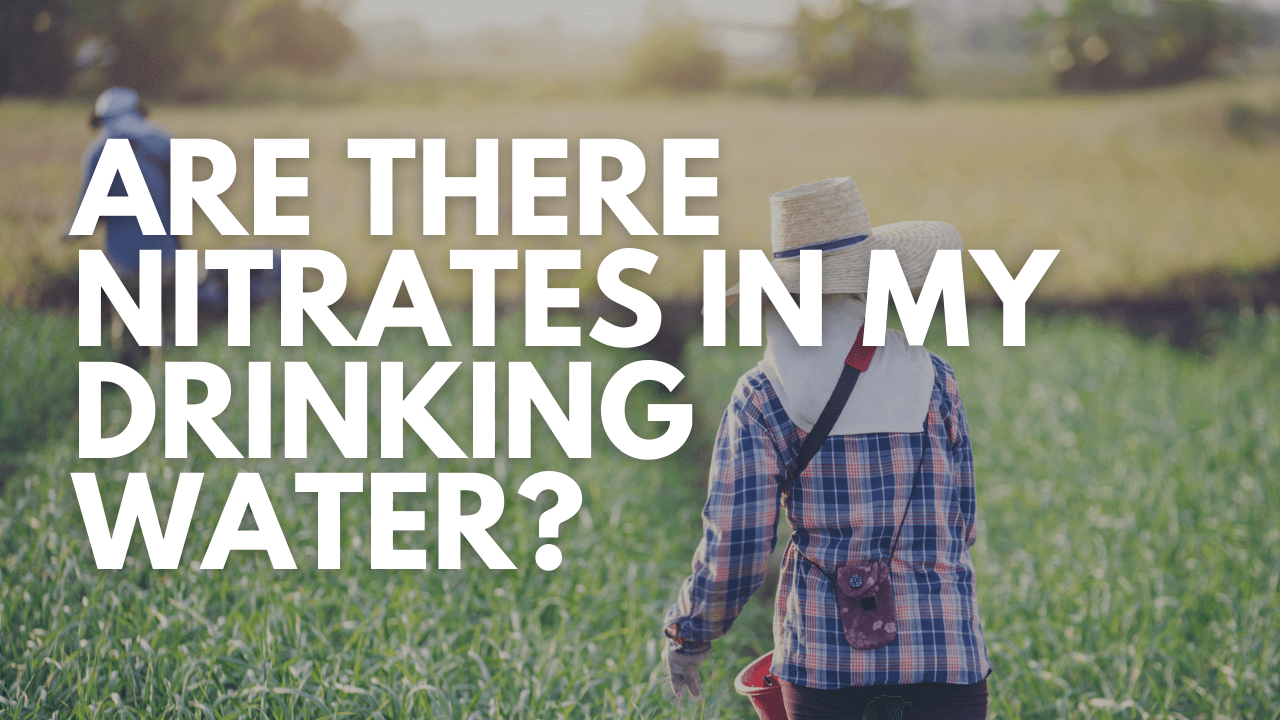Are There Nitrates In My Drinking Water?
Farmers use nitrogen fertilizers to help their plants grow. When applied, it is converted into nitrates with the help of soil bacteria, which then encourages plant growth for more food while using fewer natural resources like water or land.
In the right amount, nitrates are a great way to grow food, but if too much is applied, they can cause problems such as spilling into groundwater or runoff.
In addition, groundwater can also become contaminated with excessive nitrates due to seepage of human sewage from private septic tanks and animal waste from dairies and feedlots.
Higher nitrate levels may also indicate other contaminants such as pesticides or other inorganic/ organic compounds that could be harmful to human health.

Nitrate Risks
Infants are at a much higher risk of illness or death due to nitrate ingestion, which is often referred to as blue baby syndrome. It is a condition where the baby's skin turns blue through a lack of oxygen in the blood. It’s in this process that oxygen deficiency turns fatal.
While some water supplies in rural areas have elevated concentrations of nitrates up to 300 mg per liter, the World Health Organization (WHO) and Australian Drinking Water Guidelines have set limits at 50 mg/l.
As you can see, the risk for nitrate toxicity skyrockets in rural areas.

How Do you Remove Nitrates From Your Tap Water?
Nitrates are one of the toughest contaminants to get out of the water as they can’t be removed by filters that use sediment or carbon.
Carbon block filters can reduce nitrates up to 70-80%, but the best way to remove nitrates from drinking water is by Reverse Osmosis Water Filters.
Reverse Osmosis is the best way to remove nitrates from your tap water, followed by Ion Exchange, such as the Alkaway Ultrastream.
We have some of the best Reverse Osmosis Water Filters in the world, and the Buyers Guide To Reverse Osmosis is a great starting place for those who are new to it all.
Please feel free to contact us if you have any questions; we’d be delighted to help.

What Are Farmers Doing To Prevent Nitrates Polluting The Water Supply In Rural Areas
Progressive farmers are finding new ways to grow more food with fewer resources.
They're adopting conservation-focused techniques such as cover cropping, genetic engineering (GE), and no-tillage farming that minimizes synthetic fertilizers in their fields while still producing an abundance for human consumption.
The newest technology in farming allows for pinpoint accuracy when applying fertilizer. This means farmers can tailor the amount needed without overdoing fertilizers.
Like our conventional water treatment facilities, farming systems aren't always perfect either, and there are still elevated nitrate levels in rural areas because nitrates accumulate over time.
Best to use a water filter as protection against potential overdoses due to uncontrolled nitrates from agricultural runoff, private septic tanks, and animal waste from dairies and feedlots.








